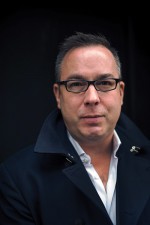Column Name
Title
Before coming to Juilliard in 2009, when the Historical Performance program began, Robert Mealy directed a Baroque orchestra at Harvard, from which he’d graduated, for a decade and then taught at Yale for 12 years. “In both places, I was one of the few people talking about historical performance,” he said. “It’s been great at Juilliard to be part of an entire faculty of performers and scholars in the H.P. program,” of which he became the director in 2012. Along with teaching, Robert tours and records with early music ensembles here and abroad; he recently received a Grammy for leading the Boston Early Music Festival’s recording of Charpentier’s Orfeo, and each Wednesday leads the Bach @ One series at Trinity Wall Street.
Body
Juilliard415 makes its West Coast debut this month with concerts in your hometown, Berkeley, and Vancouver (with a preview at Alice Tully Hall on November 16). What do the students gain from being on the road that they wouldn’t get at school?
The chance to be touring together is a real bonding experience, and getting to perform the same repertoire over and over is incredibly enriching. J415 has frequently had the amazing opportunity to play in places where our music was first performed: in churches in Italy or concert halls in London or Paris. And this will be special in part since in Berkeley, the students will be performing alongside members of Philharmonia Baroque, one of the finest historical-performance orchestras.
When did you know you wanted to be a musician?
I started violin when I was about 5, and kind of taught myself piano by working through the Mozart sonatas a bit later. When I went to college, though, I wanted to study theories of interpretation, so I did English. After a year I dropped out and joined Tafelmusik, the Canadian Baroque orchestra, and toured the world with them for a few years. I eventually finished my undergraduate degree, but by then it was pretty clear my life was going to revolve around performance.
Why did you decide to focus on early music?
I started getting fascinated by early music when I was about 12, and got completely obsessed by late medieval music, of all things. My parents’ music collection had a ton of early music (they were both Boulanger students) and lots of 20th-century stuff, but almost no 19th-century music. I think we were the only household in Berkeley to have four different recordings of Moses und Aron. Around 13 or 14, I started seriously studying harpsichord as well as Baroque violin; by 16, I was playing in Baroque orchestras, and I went off to study early music in London. I thought I was going to be a harpsichordist but that seemed like kind of a lonely life, so I went with Baroque violin instead. I think three things really drew me to historical performance: the sheer physical pleasure of playing these instruments, with their amazing timbres and resonance; the fascination of having to really figure out what the music is saying without any editor telling you; and finally the incredible eloquence of so much of this early repertory, which does so very much with so few notes.
How do you feel about non-early music?
I actually listen to a lot of contemporary music: the vivid theatricality of gesture and the fascination with color and timbre seem very parallel to a lot of early music. And thanks to my husband, who’s a total jazz fan, there’s a lot of post-bop playing when I come home. I wish we could even begin to approach that ease of improvisation in historical performance.
If your students could remember just one thing from your teaching, what would it be?
Musical rhetoric, which sounds complicated but it’s very simple: Our art isn’t about truth, it’s about persuasion. You can be totally historically correct about something, but that doesn’t matter if you haven’t inspired your audience.
What are your nonmusic interests or hobbies?
I read pretty nonstop: mostly novels and poetry. I think the closest thing to a hobby is petting the cat as often as possible.
What are you reading/listening to/ watching/following?
Reading recently: Rae Armantrout, Ben Lerner, Elmore Leonard, Hilary Mantel. Watching: the Cocteau Orpheus films—I’d never seen them before, and they’re amazing. Following: the unfolding spectacle of U.S. politics, usually with horror.
If you weren’t in the career you are in, what would you be doing?
I used to think life in a Zen monastery had a great deal of appeal: learning to pay attention, helping others. Either that or being a bartender in Berlin.





